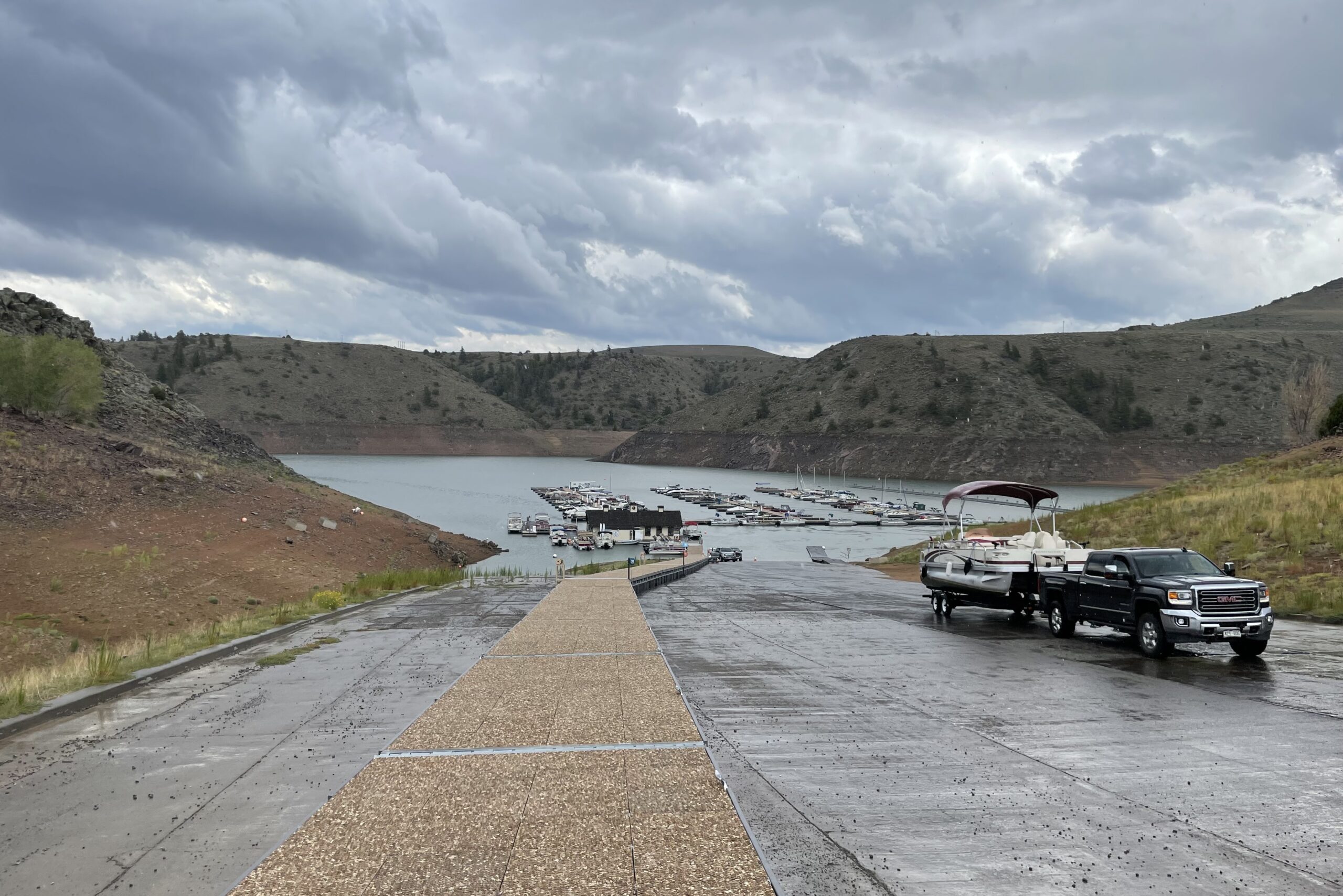
People wait in line at Elk Creek Marina to back their trailers into the water to pull their boats out of the lake. Some, like Walter Swetkoff, are frustrated.
Swetkoff and his wife have sailed Blue Mesa Reservoir outside of Gunnison, Colo., for more than 30 years. The National Park Service told everyone who stores their boats at the marina they had 10 days to get out of the water because of the drought.
“We've seen this lake go up and down many times. But we're not happy with it this year of course, because we're all getting kicked out early and we paid for our slips for the season,” Walter said.
The couple has never been asked to get their boats out of the water this early.
Mike Straub and nephew are in the parking lot tying down their sailboat. Straub said the short notice effectively ending the summer boating season was a shock, but he wasn’t surprised given the low water levels in Blue Mesa — less than 38 percent full.
“I don’t know if this is the welcome to the new global warming future, you know? This is it, we’re in it!” Straub said.

Climate change is drying up Colorado's water supply
Climate change is leading to less snowpack, and warmer temperatures mean less water is making it into the Colorado River. Blue Mesa is Colorado’s largest reservoir, and it hit its second-lowest level on record for the end of August.
Parks service officials issued the order because Elk Creek's floating dock and marina are likely to hit the lake's bottom. Eric Loken, the head of operations at the marina his family has managed for more than 30 years, said the early closure is cutting six weeks out of his five-month season.
“It's a big hit for us for sure,” Loken said. “There's a bunch of employees that thought they would be employed in October and suddenly they're out looking for employment in the middle of August.”
A 20-year, climate change-fueled megadrought has dealt a double blow to Blue Mesa this summer. The dry conditions have led to lower levels directly, but the lake is also hurting from drought problems in other states.
For the first time, the federal government is taking emergency action by taking water from Blue Mesa to help out another reservoir — Lake Powell on the Utah-Arizona border. Loken said the withdrawals hurt more given Blue Mesa’s low water levels.
“Since we’re already so low, we’re barely hanging on by our fingertips to try and stay open,” Loken said. “You take eight feet of water, and suddenly we gotta shut the doors and move everything out to deeper water. And there's nothing that we can do about it.”
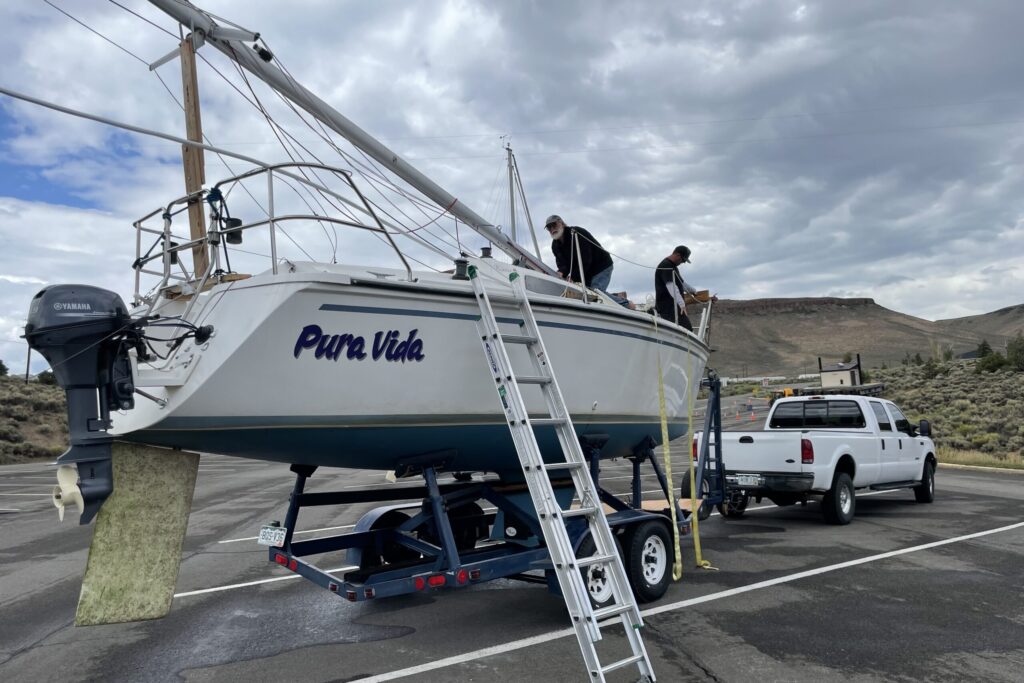
This might not be the last time Blue Mesa sends water to Lake Powell
Lake Powell, the second-largest reservoir in the U.S., hit its lowest level ever recorded earlier this summer.
Loken doesn’t know if the emergency water releases are the primary reason the marina’s season was cut short. But each time the levels in the lake drop by a foot, he loses 10 feet of usable boat ramp.
For Loken, this is a lot of water to lose during one of the busiest periods at the lake.
He’s afraid that Lake Powell will need more water from Blue Mesa if the drought doesn’t improve.
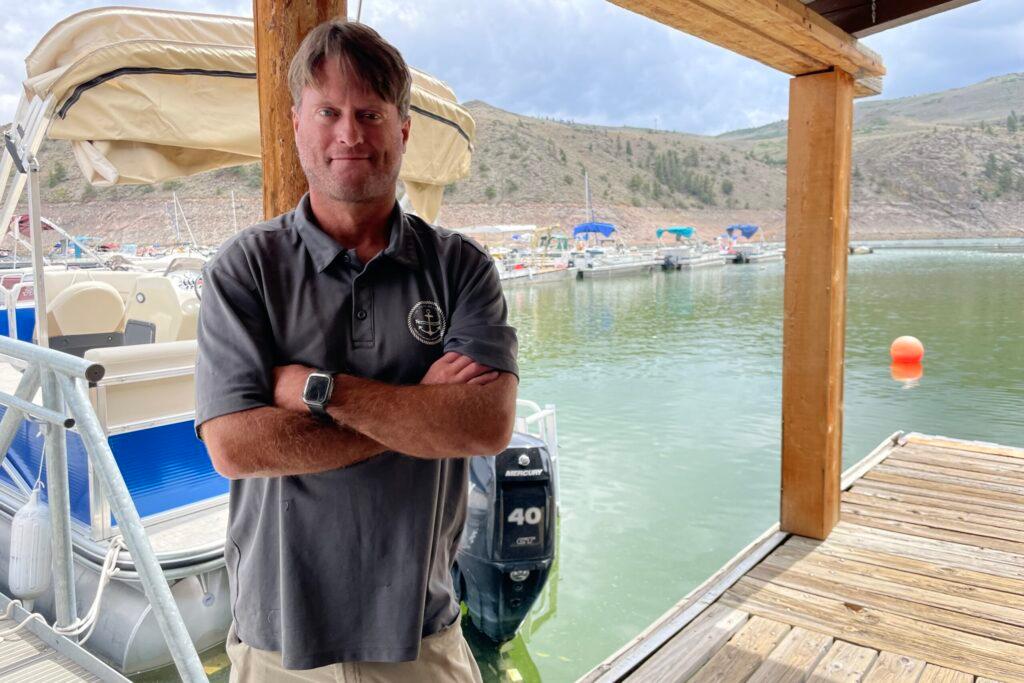
“The question is, are they just going to release whatever we get? That would become a very big problem for everyone around here,” he said.
The states that share Colorado River water agreed to this plan in 2019. Low levels in Lake Powell would trigger an emergency release from three reservoirs upstream.
The water taken from Blue Mesa is being used to make sure hydroelectric power turbines at Lake Powell can keep spinning and generating electricity for millions of people in the West, including customers in Colorado.
John McClow, a lawyer for the Upper Gunnison River Conservancy District, said this scenario is what Blue Mesa and the other reservoirs were built for in the 1960s — drought emergencies, not recreation. It’s a bank of water that states can tap when they need to.
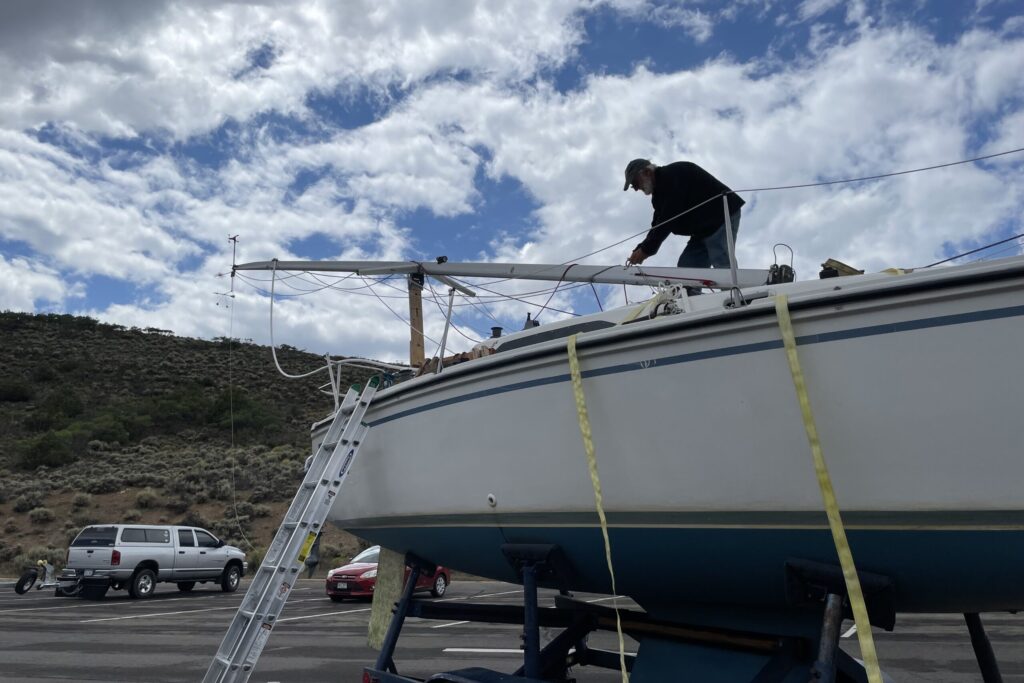
The release of water from Blue Mesa was disruptive for recreation there
Although the water in Blue Mesa has always been earmarked for Lake Powell if Colorado needed help meeting its legal obligation to send more flow to downstream states, McClow said the timing of the release was unnecessarily disruptive. He wishes the U.S. Bureau of Reclamation would have waited to take the water until October when lake tourism starts slowing down.
Erik Knight, a Bureau of Reclamation hydrologist, said that while the timing of the water releases might have hurt the lake, it improved rafting and fishing downstream of Blue Mesa, including parts of the Gunnison River that were so low that commercial rafting was likely to have been canceled.
“It's kind of a trade-off in our viewpoint,” Knight said.
Knight said the Bureau could take more water from Blue Mesa to protect hydroelectricity production at Lake Powell if snowpack and runoff remain low in 2022.
“Obviously we need to be ready to do something,” he said. “And so we've done a little bit so far, but no one can really answer the question as to whether or not it’s going to be enough.”
Knight hopes there's more snow in the mountains next year so that the drought won't be as dire. But he realizes that hope might not be enough. He said the people who rely on the Colorado River might need to adapt the system to a warmer and drier future — one its creators never imagined.
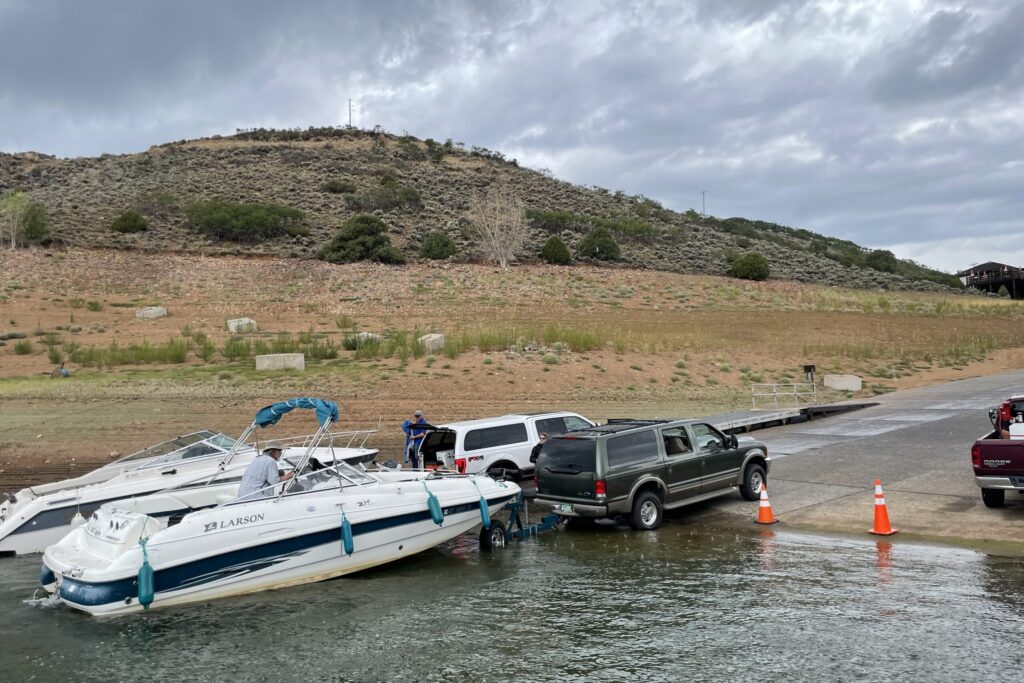
- To Understand How Mountains And The Atmosphere Bring Water To The West, Scientists Aim Their Instruments At Colorado’s Sky
- The First-Ever Colorado River Water Shortage Has Been Declared. What Does That Mean For Colorado?
- Lake Powell Just Hit Its Level On Record. Here’s What That Means For Colorado And States That Rely On It









